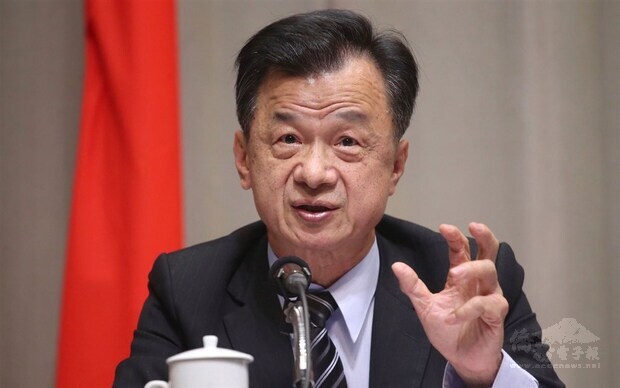
Taipei, Feb. 24 (CNA) The top offices responsible for cross- Taiwan Strait policy on both sides aired their grievances in uncharacteristically vivid and idiomatic terms this week, led by the new head of Taiwan's Mainland Affairs Council (MAC).
In his inaugural speech as director of the MAC, former Justice Minister Chiu Tai-san on Tuesday pledged to do his best to improve relations between Taiwan and China, saying the two sides should share the "the blossoming of flowers in the warmth of spring."
However, when asked after the speech about the controversy over an informal cross-strait agreement known as the "1992 consensus," Chiu said China has tried to "reinterpret" the consensus in ways that are not acceptable to the Taiwanese public, but he did not elaborate.
The 1992 consensus refers to a tacit understanding that Taiwan's then-Kuomintang (KMT) government and the Chinese government reached in 1992, which was interpreted by the KMT to mean that both sides of the strait acknowledged that there was only "one China," with each side free to interpret what "China" means.
Taiwan's current governing Democratic Progressive Party (DPP) has argued that the consensus is meaningless, because China has never recognized that each side is free to make its own interpretation, even though China has also never publicly rejected the KMT's interpretation. In addition, public opinion in the party is also strongly opposed to policies seen as fostering identification with China.
On Wednesday, in response to Chiu's inaugural speech, Ma Xiaoguang, spokesman of China's Taiwan Affairs Office, borrowed the words of Tang Dynasty poet Li Bai, saying that Taiwan would have to return to the 1992 consensus if it wished to create the conditions of "the east wind, rain and dew" for cross-strait ties to blossom.
Ma also rejected the claim that Beijing had changed its position on the 1992 consensus, saying that "this gentleman" (Chiu) was intentionally conflating the consensus with the "one country, two systems" policy that China employs in Hong Kong.
"It's not that (Chiu) doesn't know this, but rather that he is trying to intentionally twist and distort" the facts, Ma said.
In a statement later in the day, the MAC reiterated its position on the 1992 consensus and said the burden of easing the cross-strait impasse lies with Beijing.
In the statement, the MAC called on China to recognize that the antagonism and distrust it had created in Taiwan was caused by its "negative actions" and support for frameworks that "belittled" the country, such as the "one country, two systems" and the 1992 consensus.
"Pragmatic thinking and acts of goodwill" are required from Beijing to dissolve the divisions between the two sides and return to positive interaction, the MAC said.
When asked about the exchange on Wednesday, Taiwanese scholar Chang Wu-ueh expressed skepticism that Beijing would alter its position on the 1992 consensus, noting that the understanding had been codified in multiple government policy reports in China.
The issues currently hindering the cross-strait relationship include a lack of communication channels, the deterioration of U.S.-China ties, negative public opinion on both sides, and the situation in Hong Kong, said Chang, an associate professor at Tamkang University's Graduate Institute of China Studies.
In his opinion, Chang said, the two sides should avoid major ideological debates over frameworks like the 1992 consensus and focus instead on building confidence and resuming normal exchanges.